SUMMARY
VENOM: None
PREVALENCE: Common
ACTIVE PERIOD: Active at night
KEY ID FEATURES: Yellowish tan with black markings and distinctive red lacquer colored eyes
BEHAVIOR: Docile and slow moving, may squirm if handled but almost never bites
SIZE: Small - 30-60cm
OTHER: Specialized jaw for extracting snails from their shells
QUICK ASSESSMENT 0-10
GALLERY
IMPORTANT: Many snakes have significant variance in coloration and pattern even within the same species. There can also be extreme differences in appearance from juveniles to adults so it is important to never assume you have properly identified a snake.
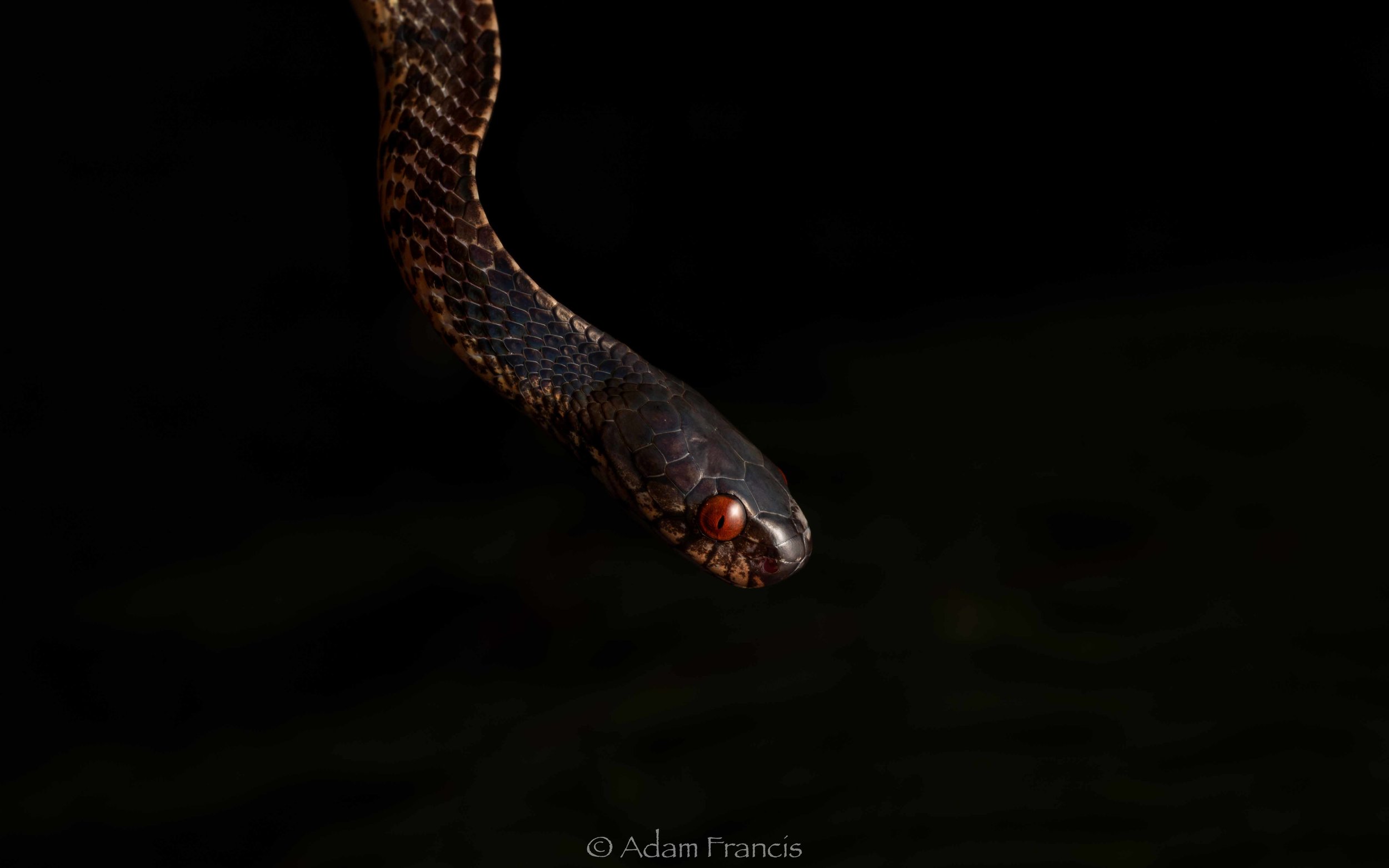
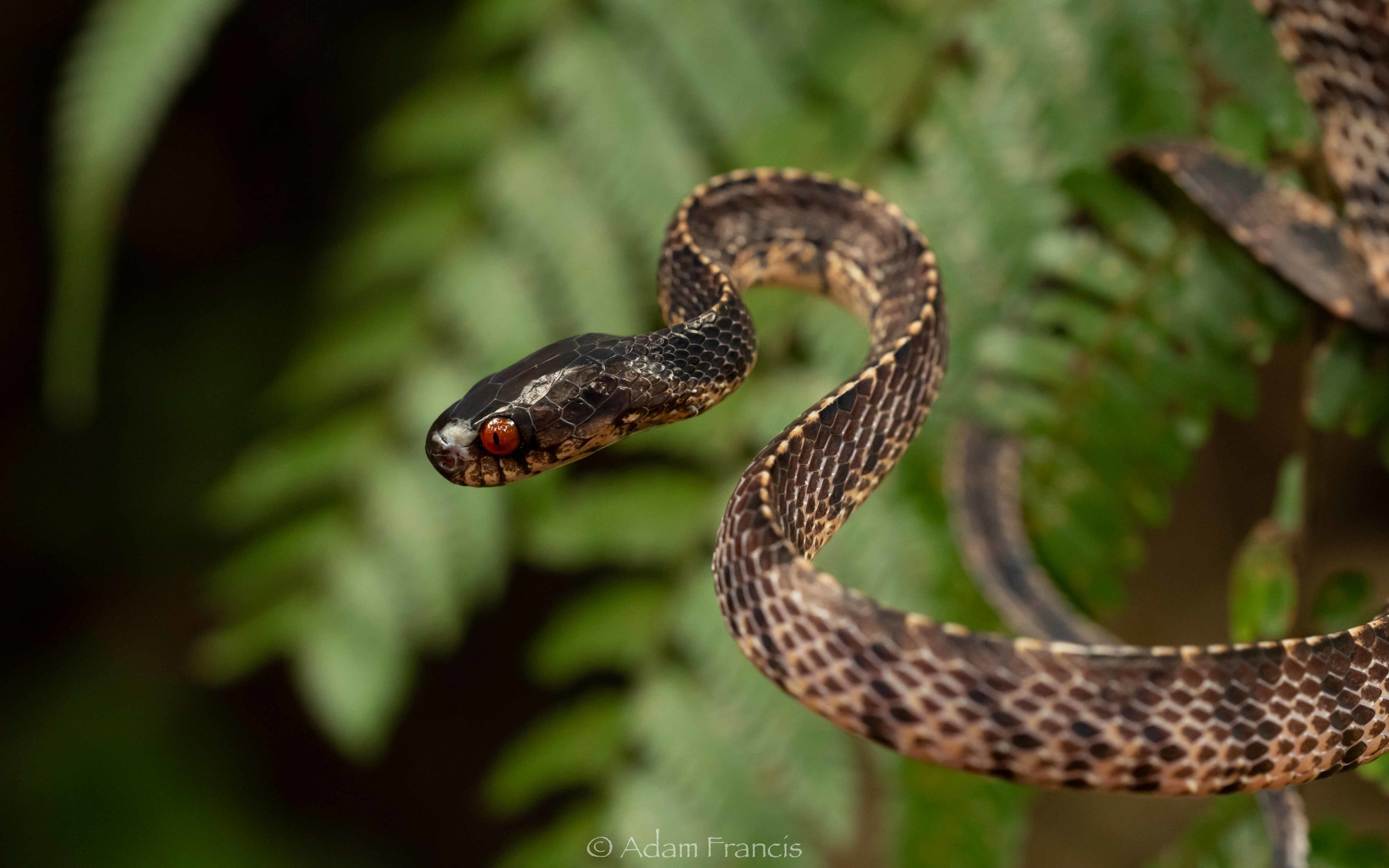
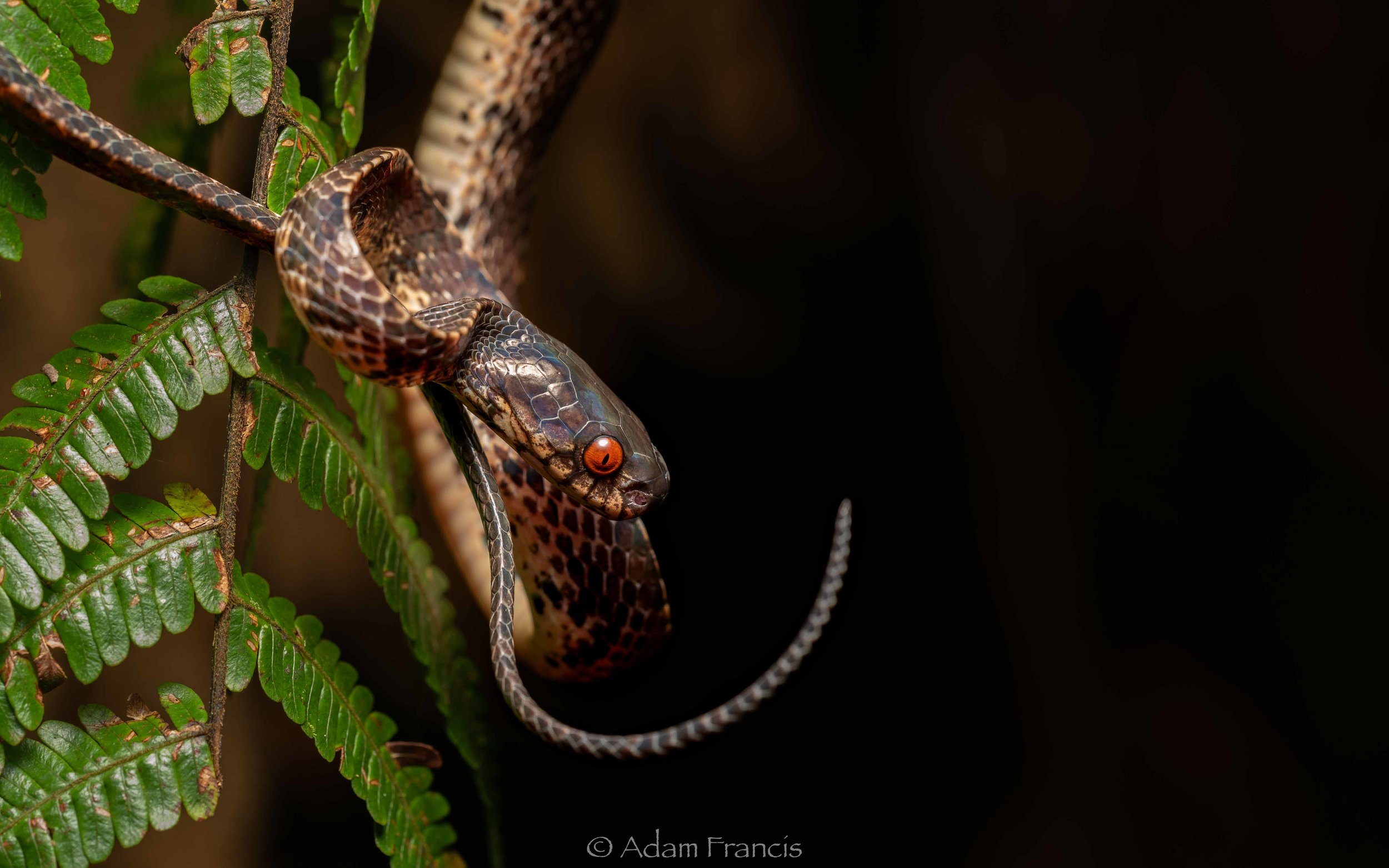
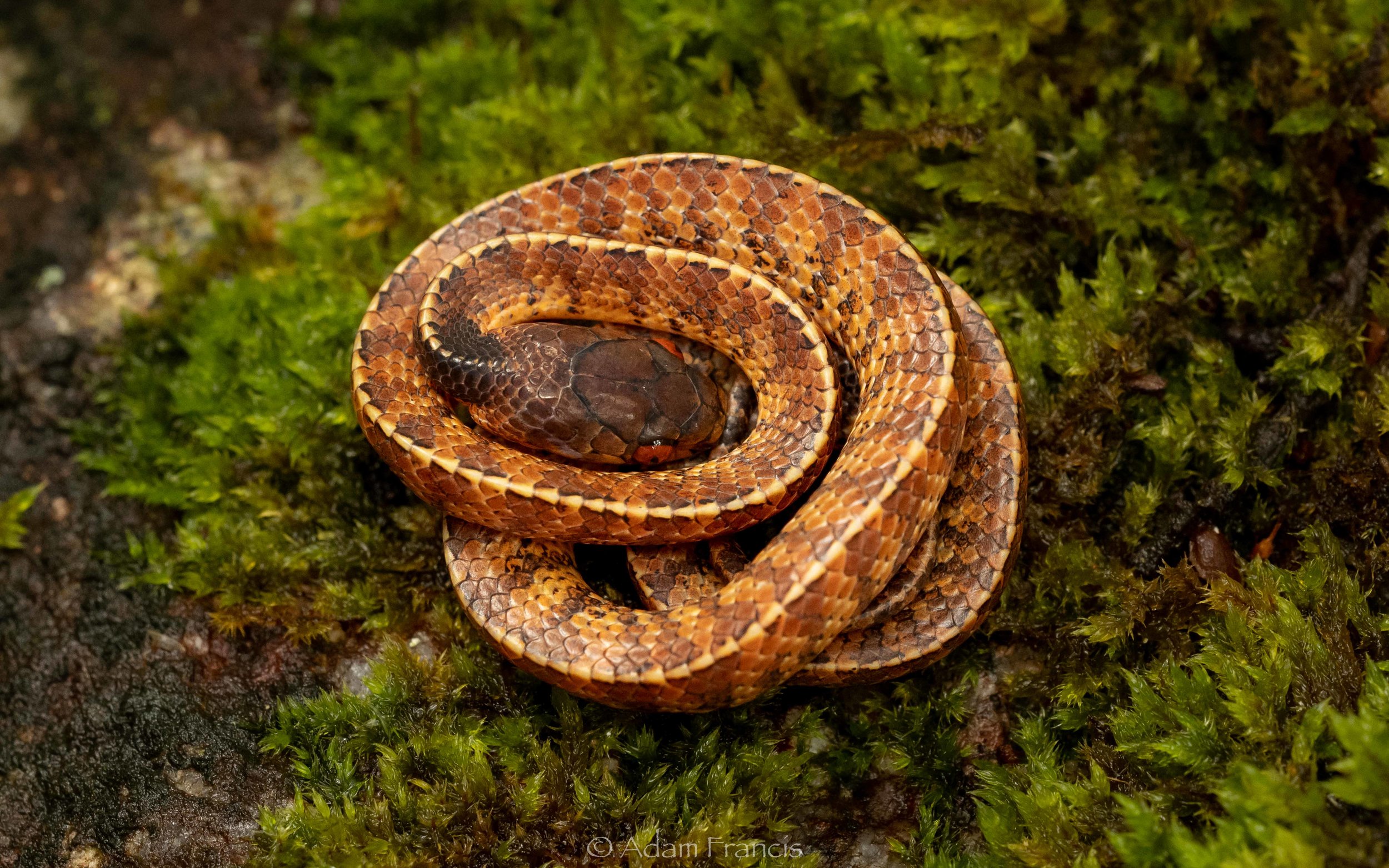
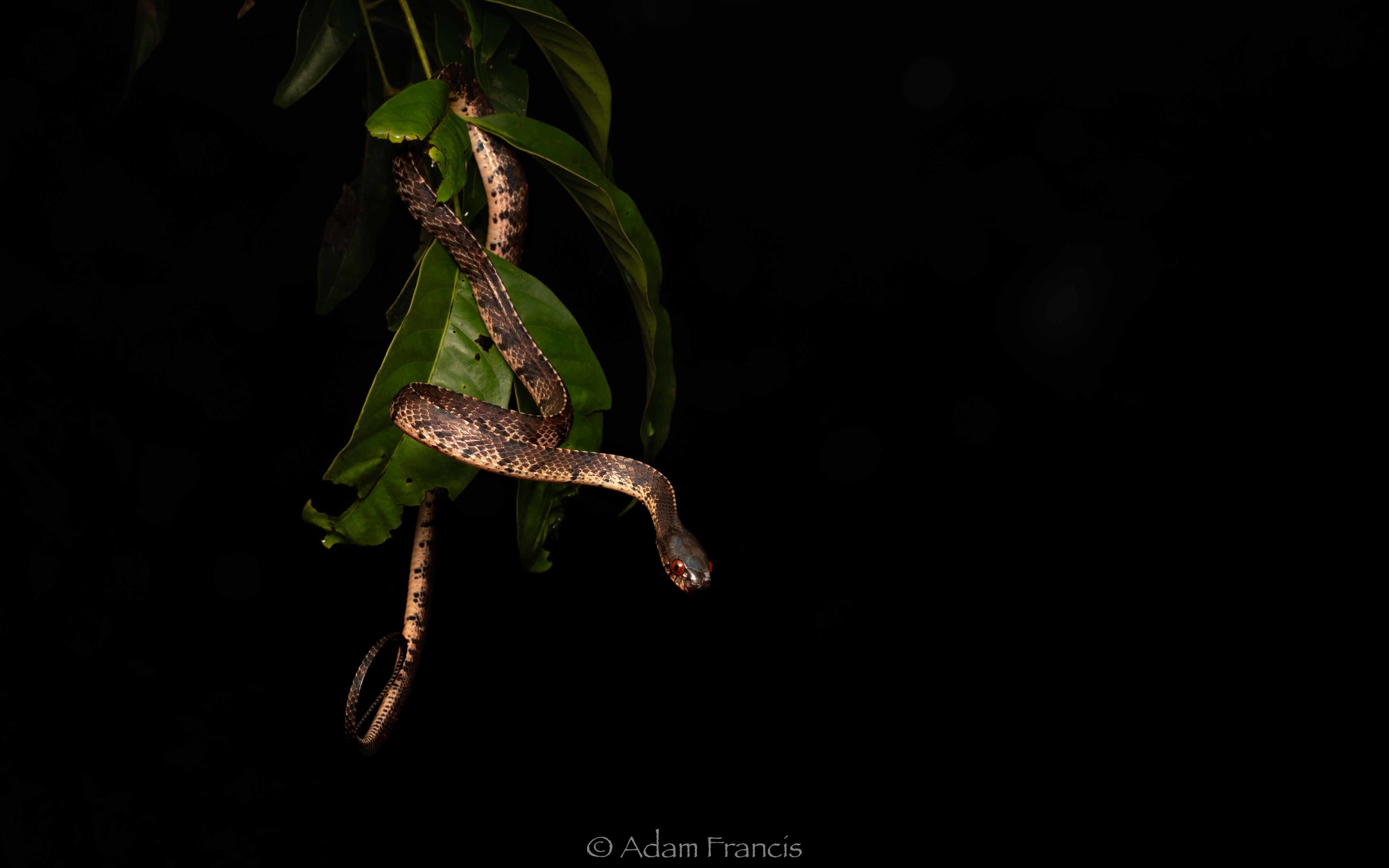
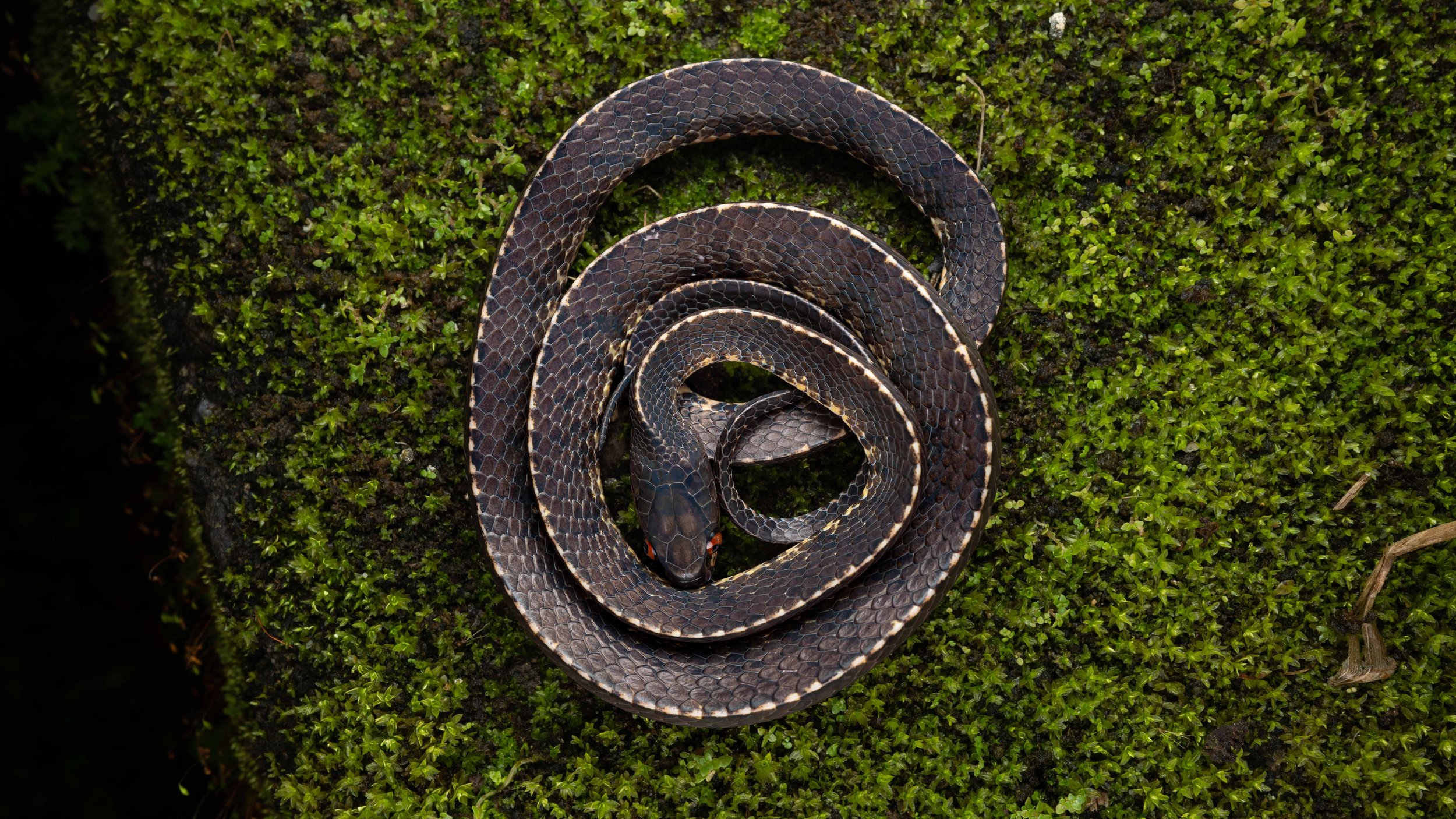
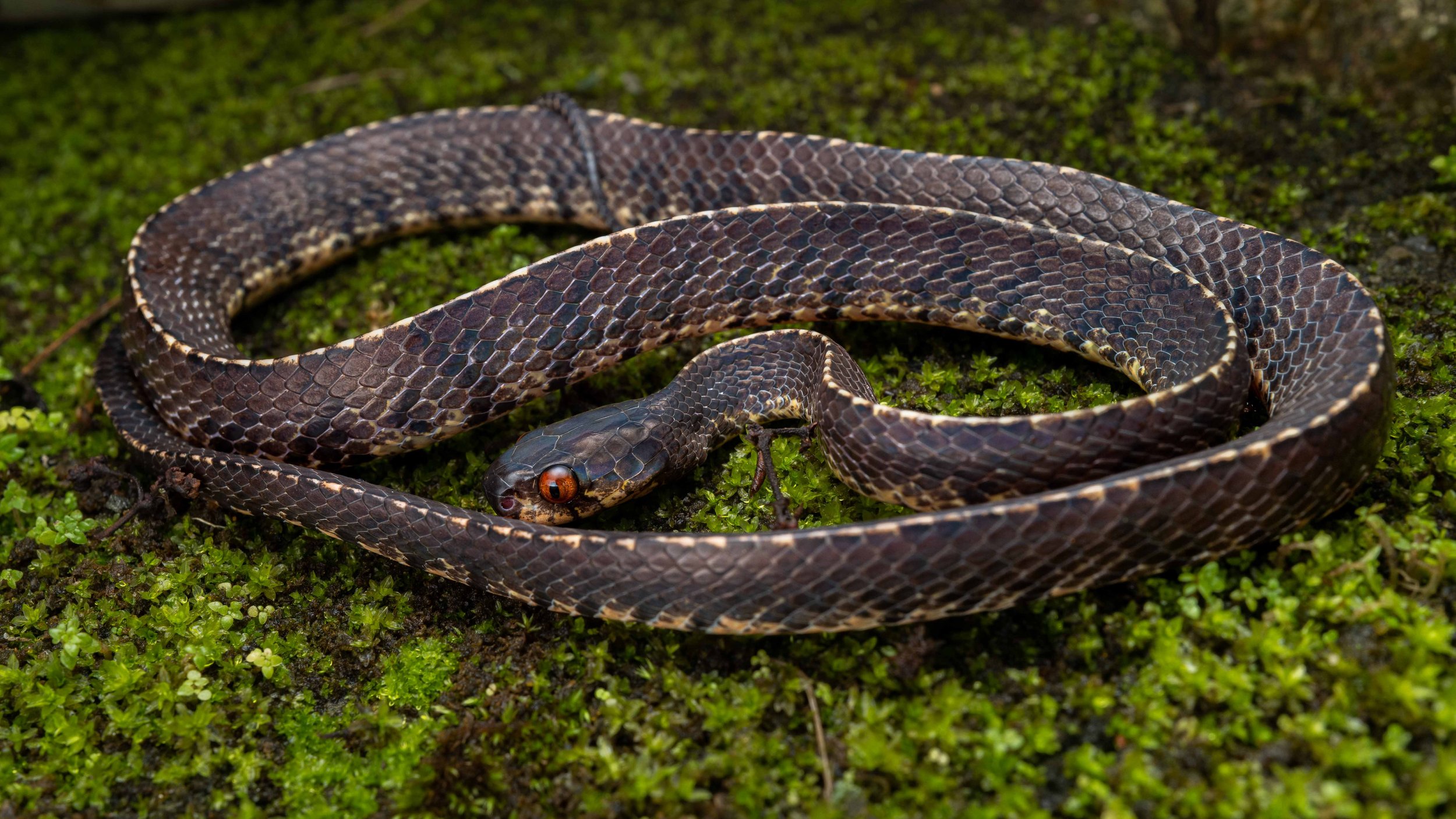
DESCRIPTION
Up to 60cm in length, the Mountain Slug Snake is a relatively small slow moving snake with a yellowish tan body with black and or dark brow brown markings when a juvenile and largely black with light tan or faded peach coloration on the lower laterals of the body when mature. They have a rounded specialized head with a thinner neck and proportioned body that is heavily keeled. Very distinctive red lacquer colored eyes with small vertical pupils. Nonvenomous and completely docile, the Mountain Slug Snake is an inoffensive species.
BEHAVIOR
Completely nocturnal the Mountain Slug Snake is a docile hunter of snails and small slugs. Generally they will stay still when approached and may squirm when handled but never bite and are not known to musk heavily. May display defensive behavior including playing dead or rolling into a ball especially as juveniles.
HABITAT
Live in moist forested areas where their exclusive diet of small snails and slugs can be found. They prefer higher elevations and cooler temperatures. They thrive in forested habitats that frequently experience cloud mist. The Mountain Slug Snake is relatively common in its range.
MISTAKEN IDENTITY
NO SNAKE SHOULD EVER BE HANDLED BY ANYONE BUT EXPERTS: Generally unique in appearance and temperament but could be mistaken for other slug snakes like the Mirkwood Slug Snake. It should be noted that small snakes can be particularly dangerous due to difficulty in properly identifying them and difficulty handling them. As such they should never be handled or approached.

